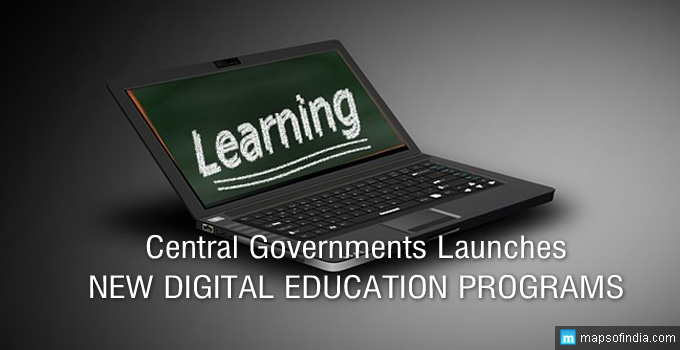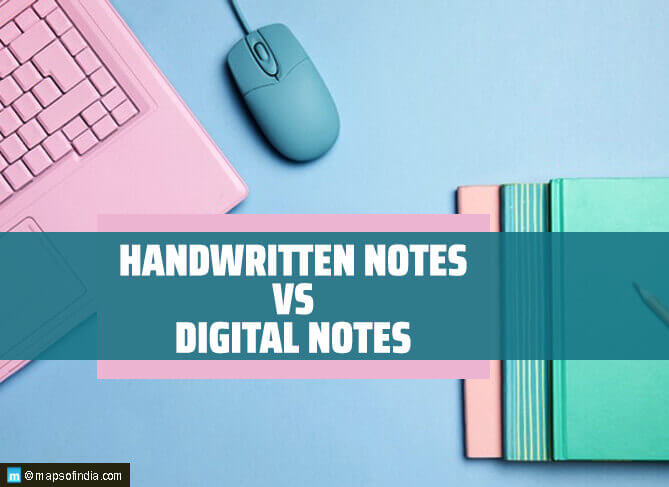Ever since the NDA government came to power in 2014, there has been a great deal of emphasis on digital initiatives. From increasing the ease of doing business through online clearances to launching a complaints and suggestions application, we’re finding ourselves increasingly hooked to digital devices. Why then should the vast expanse of our nation remain deprived of quality education when we have the technology to reach out to the masses? In an attempt to answer this question that the central government decided to launch two programs that will make education accessible to one and all.
The Honourable President of India Mr. Pranab Mukherjee launched the two digital education initiatives – SWAYAM and SWAYAM Prabha. The launch was held yesterday, 9 July, 2017, on the occasion of Guru Purnima – the full moon day when the preceptor or teacher is worshiped across the country. Chief Economic Advisor to the government of India, Mr. Arvind Subramanian and Secretary in the Department of Electronic Information and Technology, Mr. Ajay Sawhney, we among those who attended the launch ceremony.
“Digital technology enables good teachers to directly teach large number of students who are not physically present in classes. ICT (information and communication technology) solutions offer an interactive learning experience through which students in remote parts of the country can benefit from lectures of the top teachers”, said the President speaking at the launch.
SWAYAM Classrooms
SWAYAM is a Massive Open Online Courses (MOOCs) initiative. This means that educational courses under SWAYAM will be offered online and can be accessed by students through digital classrooms. This will allow just about anyone in the country to register and learn. In case a student is looking for a certification through the SWAYAM initiative, this too shall be made available on payment of a nominal fee. All study materials and classroom videos shall be made available free of cost through this initiative. According to the Minister of Human Resource Development courses from senior secondary school level to post-graduate level shall be available through SWAYAM
SWAYAM Prabha
Swayam Prabha is a Direct- to-Home Service. This means that classroom lectures and the classroom experience will be delivered directly to the household of interested students through 32 digital educational television channels which will now be run by the HRD ministry. These channels can be accessed by anyone with a dish antenna and television. Each day at least 4 hours of new educational content will be made available on these channels. There will be repeats and reruns for students to be able to access the lectures and training sessions at all times. Swayam Prabha will cover curses from Class IX level to IIT preparatory courses. This initiative will help bridge the gap in quality of education and language of delivery between the rural and urban areas, said President Mukherjee.
Apart from SWAYAM and SWAYAM Prabha, the President launched two other initiatives by the HRD Ministry as well. These are the National Academic Depository (NAD) and the National Digital Library (NDL)
National Academic Depository (NAD)
The newly launched National Academic Depository is a digital bank that can be used by educational institutions to store educational degrees, certifications and diploma awarded by the various universities and higher education institutions across the country. The benefit of using such a depository will be quick and easy verification and authentication of credentials of these degrees by other educational institutions and even by prospective employers of the holders. With this the issue of faking degrees and certificates is likely to be eliminated. The idea of the NAD had initially come up in the budget speech of Finance Minister Mr. Arun Jaitley earlier this year. The HRD ministry hopes to sort growing concerns about fake degrees and universities, thereby helping all three – employers, educational institutions, and students.
Apart from these, the President also launched the National Digital Library (NDL), an online library that provides anyone in the country free access to over 70 lakh books. This is the biggest online library in India.
With the launch of these revolutionary initiatives, higher education, particularly quality higher education, will not be out of reach for any capable student in the country. No child desiring to pursue an higher studies shall remain deprived of it for lack of resources, finances, or opportunity.






